Understanding and Managing Anxiety with TMD Telehealth
Introduction: Welcome to TMD Telehealth, where we prioritize your mental well-being as much as your physical health. In today’s fast-paced world, anxiety has become an increasingly prevalent concern, affecting millions. If you find yourself navigating the challenges of anxiety, know that you’re not alone. At TMD Telehealth, we’re here to provide support, understanding, and effective solutions tailored to your unique needs.
What is Anxiety? Anxiety is more than just feeling stressed; it’s a complex emotional state that can impact your daily life. From persistent worry to physical symptoms, anxiety manifests in various forms. It’s crucial to recognize these signs early and seek professional guidance.
Common Symptoms of Anxiety:
- Persistent worry or fear
- Restlessness or irritability
- Difficulty concentrating
- Muscle tension
- Sleep disturbances
- Rapid heartbeat or shortness of breath
Our Approach at TMD Telehealth: Understanding anxiety requires a comprehensive approach. Our licensed providers specialize in mental health and are ready to assist you. Through virtual consultations, we offer a secure space for you to discuss your concerns, explore coping strategies, and receive professional guidance.
Services We Offer:
- Anxiety Assessment: Our providers conduct thorough assessments to understand the root causes and triggers of your anxiety, paving the way for personalized care.
- Counseling and Therapy: TMD Telehealth provides access to experienced mental health professionals who specialize in anxiety management. Our virtual counseling sessions offer a private and supportive environment.
- Medication Management: In certain cases, medications can be a helpful component of anxiety treatment. Our providers are experienced in medication management, ensuring a balanced and effective approach.
Why Choose TMD Telehealth for Anxiety Care?
- Expertise at Your Fingertips: Our team comprises licensed professionals with extensive experience in mental health, ensuring that you receive expert care tailored to your needs.
- Convenience and Privacy: Consultations happen in the comfort of your home or workplace, preserving your personal space. No waiting rooms, no commute – just a secure virtual space for your well-being.
- Personalized Care Plans: We believe in addressing the individual, not just the symptoms. Your anxiety management plan will be tailored to your unique situation, promoting lasting well-being.
Take the First Step: Book a Consultation: Don’t let anxiety control your life. Take the first step towards a healthier mind. Book a consultation with a TMD Telehealth provider today. Your well-being is our priority, and we’re here to support you on your journey to mental wellness.
Managing Anxiety with TMD Telehealth Services
Introduction
At TMD Telehealth Services, we understand that anxiety can have a significant impact on your daily life and well-being. Our dedicated team of healthcare professionals is here to provide you with expert guidance, support, and treatment options for anxiety. This page offers comprehensive information about anxiety, its symptoms, causes, and how our telehealth services can assist you in managing and overcoming anxiety.
Understanding Anxiety
Anxiety is a common and natural response to stress, but when it becomes overwhelming and persistent, it can interfere with your daily life. Anxiety disorders encompass a range of conditions, including generalized anxiety disorder (GAD), panic disorder, social anxiety disorder, and specific phobias. It’s important to recognize the signs and seek help when needed.
Common Symptoms of Anxiety
Anxiety can manifest with various symptoms, which may include:
- Excessive Worry: Persistent and uncontrollable thoughts of worry or fear.
- Physical Symptoms: Such as rapid heartbeat, sweating, trembling, and muscle tension.
- Restlessness: Feeling on edge or unable to relax.
- Difficulty Concentrating: Finding it hard to focus on tasks or make decisions.
- Irritability: Increased sensitivity and irritability.
- Avoidance: Avoiding situations or places that trigger anxiety.
Causes of Anxiety
Anxiety disorders can result from a combination of genetic, environmental, and psychological factors. Common triggers include stress, traumatic experiences, family history, and changes in brain chemistry. It’s important to remember that anxiety is a treatable condition, and seeking help is a positive step toward managing it.
Diagnosis and Treatment
Diagnosing and treating anxiety typically involves:
- Telehealth Consultation: Schedule a telehealth consultation with one of our experienced healthcare providers to discuss your symptoms, triggers, and concerns.
- Assessment: Our healthcare provider will assess your anxiety symptoms and may recommend additional tests or assessments.
- Therapy: Therapy, such as Cognitive Behavioral Therapy (CBT), can help you learn effective strategies to manage anxiety.
- Medications: In some cases, medication may be prescribed to alleviate severe anxiety symptoms.
The Benefits of Telehealth for Anxiety
Telehealth services offer several advantages for individuals dealing with anxiety:
- Convenience: Access care from the comfort of your home or any location with internet access.
- Reduced Stigma: Telehealth can provide a more private and less stigmatized environment for discussing mental health concerns.
- Consistent Care: Maintain regular contact with your healthcare provider through telehealth appointments, ensuring ongoing support.
Conclusion
Managing anxiety is a journey towards better mental health and well-being. At TMD Telehealth Services, we are committed to providing you with the support, guidance, and treatment options you need to overcome anxiety. Schedule a telehealth consultation today to take the first step towards a calmer, more fulfilling life.
For immediate mental health support or if you are in crisis, please reach out to a mental health crisis helpline or your nearest healthcare facility.




